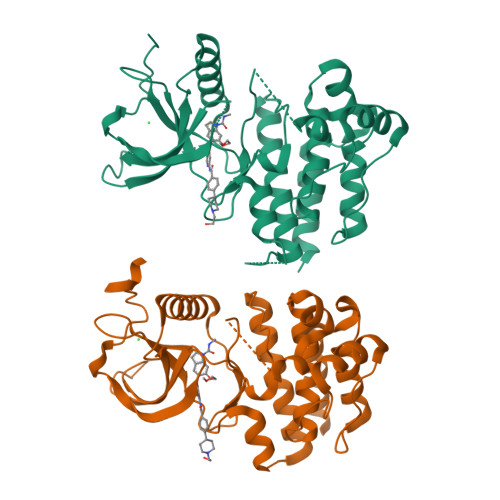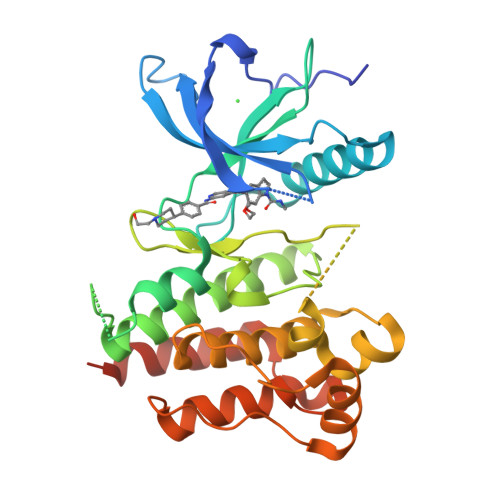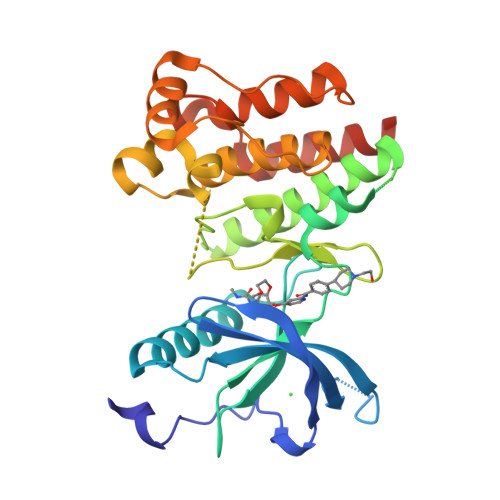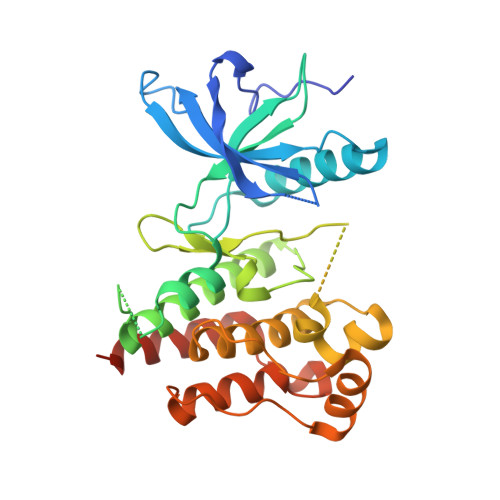Antitumor Activity of Tasurgratinib as an Orally Available FGFR1-3 Inhibitor in Cholangiocarcinoma Models With FGFR2-fusion.
Kawano, S., Kawada, M.I., Fukushima, S., Arai, Y., Shibata, T., Miyano, S.W.(2024) Anticancer Res 44: 2393-2406
- PubMed: 38821585
- DOI: https://doi.org/10.21873/anticanres.17046
- Primary Citation of Related Structures:
8YKI - PubMed Abstract:
Cholangiocarcinoma (CCA) is an aggressive tumor with limited treatment options especially in 2nd line or later treatments. Targeting fibroblast growth factor receptor (FGFR) 2 has recently emerged as a promising treatment option for patients with CCA harboring FGFR2-fusion. This study investigated the antitumor activities of tasurgratinib as an orally available FGFR1-3 inhibitor, in preclinical FGFR2-driven CCA models. Antitumor activities of tasurgratinib were examined in vitro and in vivo using NIH/3T3 cells expressing FGFR2-fusion as FGFR2-driven CCA models, and in vivo using a CCA patient-derived xenograft model. The molecular mechanism of action of tasurgratinib was elucidated through co-crystal structure analysis with FGFR1, manual complex model analysis with FGFR2, and binding kinetics analysis with FGFR2. Furthermore, the cell-based inhibitory activities against acquired resistant FGFR2 mutations in patients with CCA treated with FGFR inhibitors were evaluated. Tasurgratinib showed antitumor activity in preclinical FGFR2-driven CCA models by inhibiting the FGFR signaling pathway in vitro and in vivo. Furthermore, cell-based target engagement assays indicated that tasurgratinib had potent inhibitory activities against FGFR2 mutations, such as N549H/K, which are the major acquired mutations in CCA. We also confirmed that tasurgratinib exhibited fast association and slow dissociation kinetics with FGFR2, binding to the ATP-binding site and the neighboring region, and adopting an Asp-Phe-Gly (DFG)-"in" conformation. These data demonstrate the therapeutic potential of tasurgratinib in FGFR2-driven CCA and provide molecular mechanistic insights into its unique inhibitory profile against secondary FGFR2 resistance mutations in patients with CCA treated with FGFR inhibitors.
Organizational Affiliation:
Eisai Co., Ltd., Tsukuba, Japan.



















